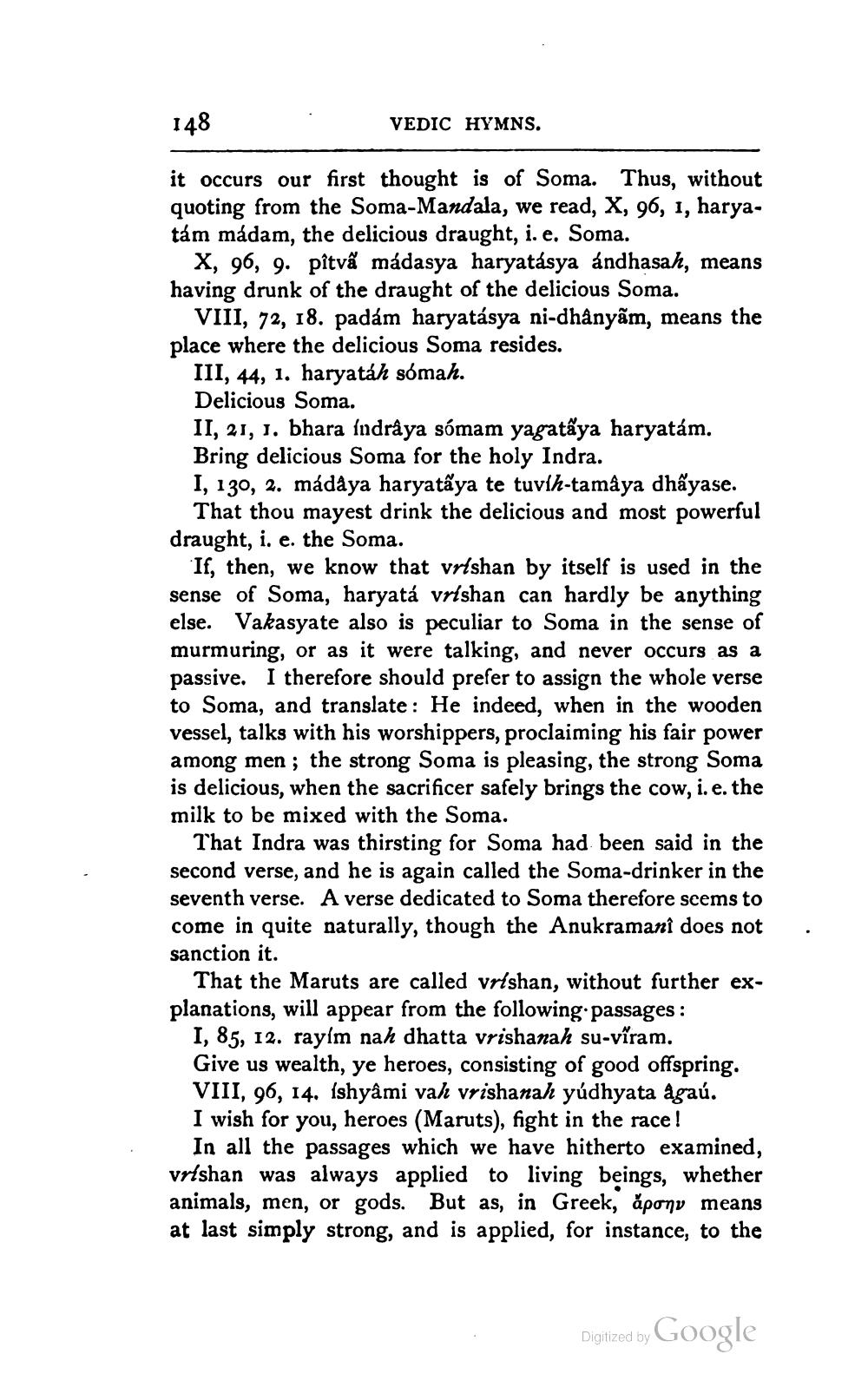________________
148
VEDIC HYMNS.
-
it occurs our first thought is of Soma. Thus, without quoting from the Soma-Mandala, we read, X, 96, 1, haryatám mádam, the delicious draught, i.e. Soma.
X, 96, 9. pitvã mádasya haryatásya andhasah, means having drunk of the draught of the delicious Soma.
VIII, 72, 18. padám haryatásya ni-dhânyam, means the place where the delicious Soma resides.
III, 44, 1. haryatáh sómah. Delicious Soma. II, 21, 1. bhara Indraya sómam yagatấya haryatám. Bring delicious Soma for the holy Indra. I, 130, 2. mádåya haryatãya te tuvih-tamâya dhấyase.
That thou mayest drink the delicious and most powerful draught, i. e. the Soma.
If, then, we know that vrlshan by itself is used in the sense of Soma, haryatá vrlshan can hardly be anything else. Vakasyate also is peculiar to Soma in the sense of murmuring, or as it were talking, and never occurs as a passive. I therefore should prefer to assign the whole verse to Soma, and translate: He indeed, when in the wooden vessel, talks with his worshippers, proclaiming his fair power among men; the strong Soma is pleasing, the strong Soma is delicious, when the sacrificer safely brings the cow, i.e. the milk to be mixed with the Soma.
That Indra was thirsting for Soma had been said in the second verse, and he is again called the Soma-drinker in the seventh verse. A verse dedicated to Soma therefore seems to come in quite naturally, though the Anukramani does not sanction it.
That the Maruts are called vrlshan, without further explanations, will appear from the following passages :
I, 85, 12. rayim nah dhatta vrishanah su-víram. Give us wealth, ye heroes, consisting of good offspring. VIII, 96, 14. Ishyâmi vah vrishanah yúdhyata agaú. I wish for you, heroes (Maruts), fight in the race!
In all the passages which we have hitherto examined, vrlshan was always applied to living beings, whether animals, men, or gods. But as, in Greek, ăpony means at last simply strong, and is applied, for instance, to the
Digitized by
Digitized by Google




